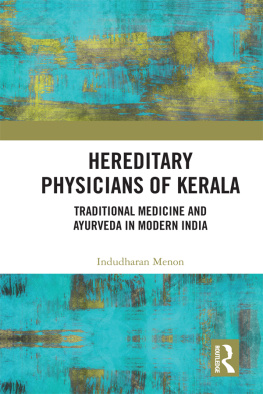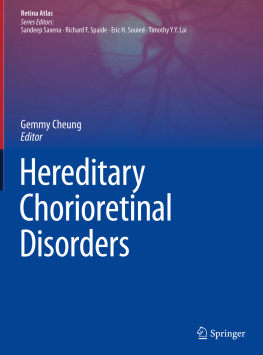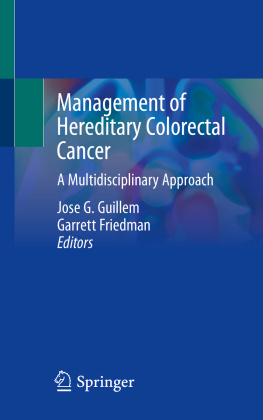Francis Galton - Hereditary Genius
Here you can read online Francis Galton - Hereditary Genius full text of the book (entire story) in english for free. Download pdf and epub, get meaning, cover and reviews about this ebook. year: 2012, publisher: Barnes & Noble, genre: Science. Description of the work, (preface) as well as reviews are available. Best literature library LitArk.com created for fans of good reading and offers a wide selection of genres:
Romance novel
Science fiction
Adventure
Detective
Science
History
Home and family
Prose
Art
Politics
Computer
Non-fiction
Religion
Business
Children
Humor
Choose a favorite category and find really read worthwhile books. Enjoy immersion in the world of imagination, feel the emotions of the characters or learn something new for yourself, make an fascinating discovery.
- Book:Hereditary Genius
- Author:
- Publisher:Barnes & Noble
- Genre:
- Year:2012
- Rating:5 / 5
- Favourites:Add to favourites
- Your mark:
- 100
- 1
- 2
- 3
- 4
- 5
Hereditary Genius: summary, description and annotation
We offer to read an annotation, description, summary or preface (depends on what the author of the book "Hereditary Genius" wrote himself). If you haven't found the necessary information about the book — write in the comments, we will try to find it.
Hereditary Genius — read online for free the complete book (whole text) full work
Below is the text of the book, divided by pages. System saving the place of the last page read, allows you to conveniently read the book "Hereditary Genius" online for free, without having to search again every time where you left off. Put a bookmark, and you can go to the page where you finished reading at any time.
Font size:
Interval:
Bookmark:
An Inquiry into Its Laws and Consequences
FRANCIS GALTON

This 2012 edition published by Barnes & Noble, Inc.
All rights reserved. No part of this publication may be reproduced, stored in a retrieval system, or transmitted, in any form or by any means, electronic, mechanical, photocopying, recording, or otherwise, without prior written permission from the publisher.
Barnes & Noble, Inc.
122 Fifth Avenue
New York, NY 10011
ISBN: 978-1-4114-6503-9
PREFACE
TO THE SECOND AMERICAN EDITION
T HE first American edition of this work having been sold, and a second being called for, the publishers have acceded to requests made from various quarters that the book should be made more generally accessible by reissuing it in a cheaper and more convenient form.
The principle of hereditary descent, by which the characteristics of races and species are preserved, is a fundamental law of life, and the investigation of its action, limits, and causes, as displayed in both the vegetable and animal kingdoms, is the task of biological science. Coupled with the principle of variation, it is the basis of the art of breeding and improving stock; while these two agencies are held by Mr. Darwin and his school to afford the true clue to the origin of the numerous forms of life.
To the operation of this principle, man is confessedly no exception; those peculiarities, physical, intellectual, and moral, which distinguish the various races being perpetuated by descent through all the generations of history. Yet there has been much confusion in people's notions concerning the descent of mind in families. For, while, on the one hand, observing persons are constantly remarking the obvious transmission of certain mental traits from parents to children, on the other hand there has been a general denial of the inheritance of talent; in other words, it is held that, while certain mental characteristics are transmissible the characteristic of genius is not.
It is clear, therefore, that what the subject required was a searching and systematic inquiry into the facts, and that has been now supplied by the present work. The following pages embody the result of the first vigorous and methodical effort to treat the question in the true scientific spirit, and place it upon the proper inductive basis. Mr. Galton maintains that mind offers no exception to the principle of hereditary descent, and he makes out his case conclusively. He proves, by overwhelming evidence, that genius, talent, or whatever we term great mental capacity, follows the law of organic transmissionruns in families, and is an affair of blood and breed; and that a sphere of phenomena, hitherto deemed capricious and defiant of rule, is nevertheless within the operation of ascertainable law.
The argument has three stages. In the first there is an analysis of the elements of human greatness, and of the conditions that must conspire to its attainment. A scale of mental valuations is constructed as a basis for classification, and the method of arriving at generalized results in social phenomena is elucidated. An ingenious and simple notation is adopted which the reader will acquire with a little attention, and will find of great service in prosecuting the discussion.
In the second stage of his work, Mr. Galton enters upon a pains-taking and exhaustive research of the historical data by which his thesis is supported. The question is here one of difficult detail respecting family affiliations, and could only be safely pursued in the home district. The number of great men and women of various types which England has produced, the intensity of the family feeling there, and the consequent completeness of the genealogical records, render that country an especially favorable field for such an investigation, and Mr. Galton has accordingly concentrated his labors upon it. The subjects of his inquiry have been judges, statesmen, commanders, literary men, men of science, poets, musicians, painters, and divines. The results of this extensive research are given in alphabetical and tabulated forms, and they bring the author to the conclusion "that a man's natural abilities are derived by inheritance under exactly the same limitations as are the form and physical features of the whole organic world."
In the third part of his work Mr. Galton passes to a comparison of his results, and to the general conclusions which they appear to justify. He here considers the various agencies by which the descent of talent is counteracted, and is led to a consideration of the comparative worth of different races, and to the influences which affect the natural ability of nations. His problem is comprehensive and profound, involving as it does the causes of human advancement and degeneracy, and what may be termed the dynamics of civilization. Of the interest of these topics it is unnecessary to speak; of the ability with which they are treated the reader can judge; the work may be commended to the students of human nature as an original and valuable contribution to the science of mind in that larger aspect which it is now assuming as a result of modern inquiries.
PREFACE
T HE idea of investigating the subject of hereditary genius occurred to me during the course of a purely ethnological inquiry, into the mental peculiarities of different races; when the fact, that characteristics cling to families, was so frequently forced on my notice as to induce me to pay especial attention to that branch of the subject. I began by thinking over the dispositions and achievements of my contemporaries at school, at college, and in after life, and was surprised to find how frequently ability seemed to go by descent. Then I made a cursory examination into the kindred of about four hundred illustrious men of all periods of history, and the results were such, in my own opinion, as completely to establish the theory that genius was hereditary, under limitations that required to be investigated. Thereupon I set to work to gather a large amount of carefully selected biographical data, and in the meantime wrote two articles on the subject, which appeared in Macmillan's Magazine in June and in August 1865. I also attacked the subject from many different sides and sometimes with very minute inquiries, because it was long before the methods I finally adopted were matured. I mention all this, to show that the foundation for my theories is broader than appears in the book, and as a partial justification if I have occasionally been betrayed into speaking somewhat more confidently than the evidence I have adduced would warrant.
I trust the reader will pardon a small percentage of error and inaccuracy, if it be so small as not to affect the general value of my results. No one can hate inaccuracy more than myself, or can have a higher idea of what an author owes to his readers, in respect to precision; but, in a subject like this, it is exceedingly difficult to correct every mistake, and still more so to avoid omissions. I have often had to run my eyes over many pages of large biographical dictionaries and volumes of memoirs to arrive at data, destined to be packed into half a dozen lines, in an appendix to one of my many chapters.
The theory of hereditary genius, though usually scouted, has been advocated by a few writers in past as well as in modern times. But I may claim to be the first to treat the subject in a statistical manner, to arrive at numerical results, and to introduce the "law of deviation from an average" into discussions on heredity.
A great many subjects are discussed in the following pages, which go beyond the primary issue,whether or no genius be hereditary. I could not refuse to consider them, because the bearings of the theory I advocate are too important to be passed over in silence.
Font size:
Interval:
Bookmark:
Similar books «Hereditary Genius»
Look at similar books to Hereditary Genius. We have selected literature similar in name and meaning in the hope of providing readers with more options to find new, interesting, not yet read works.
Discussion, reviews of the book Hereditary Genius and just readers' own opinions. Leave your comments, write what you think about the work, its meaning or the main characters. Specify what exactly you liked and what you didn't like, and why you think so.











